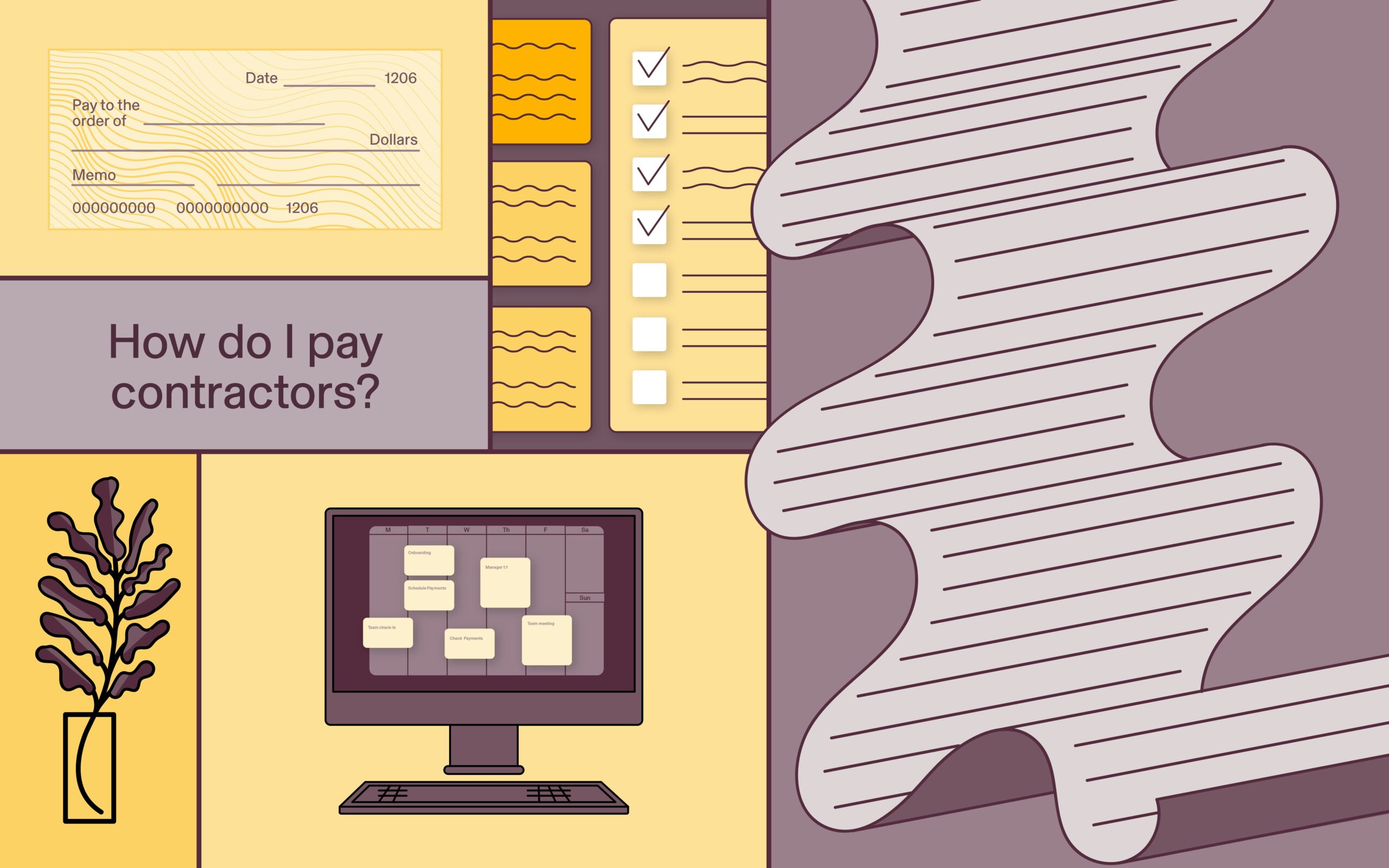How to pay international contractors in Romania [2025]
Before onboarding independent contractors from Romania and expanding your global team, it’s crucial to understand Romanian labor laws for self-employed workers to pay them on time and prevent worker misclassification.
The Fiscal Code sets strict regulations in this European country defining independent contractors and their activities. On top of that, only 29% of Romanians speak fluent English, so it’s important to have bilingual talent in your workforce.
Learn how to correctly classify independent contractors, manage them, and comply with Romania's employment laws in our step-by-step guide.
Step #1: Classify your workers in Romania
Misclassifying Romanian workers comes with serious consequences, including fines, back taxes, and other harsh penalties according to the Romanian Labor Code.
In Romania, an independent contractor provides paid services to a company but does not comply with its internal rules and operates their own registered business. An employer must offer a civil contract for the provision of services and a collaboration contract to solidify the freelance agreement.
To be classified as a contractor, workers must meet at least four of the seven independent activities defined by the Fiscal Code. These include:
- The freedom of where and how they do their work
- Use of their own resources
- The ability to work for more than one client/company at a time
- Use of their own intellectual or physical skills
- Assumption of all risks involved in the work
- Belonging to a professional organization that oversees and advocates for a particular profession
- The ability to engage in work by either hiring individuals or partnering with outside parties
If an employer misclassifies a worker and fails to provide the employment contract before the start of work, they may be fined RON 10,000 per Romanian employment law.
In the chart below, you'll find some of the characteristics that help differentiate Romanian contractors from employees.
Contractors
Employees
High level of worker control. Contractors typically have more autonomy in deciding how and when to complete their work.
More direction from the employer. Employers typically provide guidance and set work hours for employees, resulting in greater control and direction over their work.
Resources and tools are owned by the worker.
Resources and tools are typically provided by the company.
Less integrated. Contractors are typically independent, work remotely, and set their own hours.
Highly integrated. Employees are usually closely connected to their employer's organization. They often work on-site.
No entitlement to benefits. Contractors are not eligible for employer-sponsored benefits and protections and must pay their own taxes.
Entitled to benefits. Employees are entitled to mandatory benefits and protections, including minimum wage, overtime pay, retirement plans, vacation pay, health insurance, and paid sick leave.
Time-bound engagement. Usually, contractors are hired for a particular job or a set duration of time.
Indefinite engagement. Most employees are typically hired without a set end date.
Increased liability. Contractors assume the risk and liability associated with their work.
No risk of loss. Typically, employees are shielded from risk for any work-related matters.
Hire subcontractors. Contractors can delegate work to be performed by another person under their business.
No subcontracting. Employees are expected to do their work themselves and cannot delegate without their supervisor’s approval.
Step #2: Determine the best way to pay your contractors in Romania
When expanding your global team to include Romanian contractors, it's essential to carefully consider payment methods to ensure your international contractors get paid on time. Here are some options:
- Bank wires. Many local banks require you to be physically present in the country to open an account. But, you can send a global wire transfer from your bank to pay a Romanian contractor.
- International money orders. Employers must physically purchase money orders, and contractors must physically pick up and deposit them—which can be costly due to fees and bad exchange rates.
- Digital wallets or payment platforms. Employers often use Wise and PayPal to transfer money across borders. However, exchange rates fluctuate daily which can make it challenging to forecast your budget.
- Global payroll services. Usually, contractors need to invoice individually as they aren't included in the regular pay runs at most companies. With Rippling, you can pay contractors alongside the rest of your global workforce.
If your company is US-based and you paid a foreign contractor for work, you may need to submit forms 1096 and W-8 BEN to the IRS as proof.
Step #3: Use global payroll software to process payments for Romanian contractors
Skip time-consuming, manual payment processes. One of the simplest and fastest ways to pay contractors in Romania is through global payroll software. Pay contractors compliantly worldwide with Rippling's global payroll system. Here's how:

Step #4: Ensure your Romanian contractor has the right tax information
Employers aren't required to withhold and pay income taxes for contractors in Romania.
A contractor in Romania must register as a sole proprietor with the National Trade Register Office (ONRC) and apply for value-added tax (VAT) registration within 10 days of receiving their first income from work.
Romania has a flat rate tax of 10%, regardless of income earned. If you earn more than RON 36,000 per year, you must contribute 25% to social security and 10% to health insurance. Additionally, most goods, services, and sales are subject to a 19% VAT. Contractors must file annual tax returns and tax bills by May 25 each year.
Effortlessly manage contractors around the world
Expanding your global workforce has never been easier. With Rippling, you can pay international contractors in Romania and around the world in one system.
Frequently asked questions about running payroll for contractors in Romania
Do you need to withhold taxes when paying contractors in Romania?
No, you don't have to withhold payroll taxes when paying contractors in Romania. Contractors must pay their own taxes, including personal income tax, social security contributions, and VAT.
Does the Romanian minimum wage apply to independent contractors in Romania?
No, Romanian contractors are not subject to minimum wage laws.
Do Romanian contractors get benefits?
Independent contractors in Romania are not entitled to employer-provided benefits. Instead, the state provides these benefits directly to them, including sick leave, maternity or paternity leave, and pension benefits.
Can you pay contractors in Romania in your home currency?
When paying international contractors, it’s best to use their local currency. However, Romanian contractors can choose to be paid in a different currency, as long as it’s specified in the services contract.
The official currency of Romania is the Romanian leu (RON), but since Romania joined the European Union in 2007, it’s easier than ever to pay contractors in euros (EUR).
Many global payment providers, like Rippling, support contractor payments in euros, Romanian leus, or your currency.
Can you manually pay contractors in Romania?
Smaller businesses often process contractor payments manually to save money. Still, this process can quickly become time-consuming and error-prone as the business grows and works with more contractors, from Romania and beyond. Manual payment processing also comes with risks.
- Compliance issues. Manually running payroll increases the risk of human error and omission. Protect your business with Rippling, which ensures compliance with local laws for contractors worldwide.
- Security risks. GDPR's data regulations apply in Romania. Processing payroll manually using spreadsheets or paper records poses security risks, as sensitive contractor information can be lost, stolen, or abused.
- Contractor experience. Manual payments can be slow and lack the transparency contractors need regarding payment timelines. This creates a frustrating experience for contractors trying to anticipate their earnings.
How do you turn a contractor into an employee in Romania?
To transition a hard-working Romanian freelancer into a full-time employee, you must meet all the legal requirements to avoid penalties and misclassification. The Romanian Labor Code, collective bargaining agreements, and European Union laws govern employment relationships and working conditions.
Before you can make the transition, you'll need to decide whether to establish your own legal entity or use an employer of record (EOR) service. An EOR can be more cost and time-efficient.
You must also draw a standard employment contract (contract de muncă) to establish a new working relationship with the individual. The employment agreement must be in writing, in Romanian, and registered in the local labor office before the individual’s onboarding.
Unlike in other countries, in Romania, the employee must pass a medical examination performed by a licensed medical professional to ensure they can fulfill their duties—before a contract can be legally binding.
Per local laws, the employment contract must specify the length of employment—permanent, part-time, or fixed-term. If it doesn’t, the contract will be considered indefinite by default. It must also include probation period, job risks, gross salary in local currency, working hours, notice period, duties, and employee benefits (like maternity leave, paternity leave, sick leave, annual leave, public holidays, and others).
All employees should receive health insurance, pension, and labor insurance. Regular tax withholdings from salaries should fund these benefits.
Rippling and its affiliates do not provide tax, legal, or accounting advice. This material has been prepared for informational purposes only, and is not intended to provide, and should not be relied on for, tax, legal, or accounting advice. You should consult your own tax, legal, and accounting advisors before engaging in any related activities or transactions.










